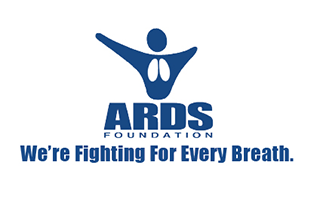What you need to know about the Coronavirus (COVID-19)
Coronavirus, or COVID-19, is a new strain of coronavirus that was discovered in 2019 and was previously not identified in humans. Common signs of this infection include respiratory syndromes, such as shortness of breath, cough and breathing difficulties. Patients more often than not will have a fever. In more severe cases, infection can lead to acute respiratory distress syndrome (ARDS), which often leads to death.
However, most cases of COVID-19 remain mild. Current recommendations to prevent infection include regular hand washing, use of sanitizing products, covering mouth and nose when coughing and sneezing, avoiding close contact with anyone who shows symptoms of illness, especially coughing and sneezing, avoiding touching your nose and face. It is recommended that people do not engage with groups of more than ten people and stay at least six feet from other people when they are out. If possible, people who can should work from home and try to isolate themselves to the extent possible, aside from grocery shopping and picking up prescriptions.
For those people who are considered high risk, older adults, and those of any age with diabetes, lung disease, immunocompromised, or other health concerns, should definitely keep sufficient space between yourself and others, when in public severely limit contact with others, avoid crowds, avoid any non-essential air travel, avoid cruise travel, and keep yourself as isolated as possible.
Remember to keep supplies available. Make sure you have sufficient prescription medications, over the counter medications, and other products such as toilet paper, paper towels, cleaning supplies, soap and sanitizing lotions. Also, ensure that you have enough groceries, or the ability to get groceries or meals for a sufficient length of time. Have enough household items in case you are required to stay at home for a period of time.
If you get sick, consult with your health care provider. Stay in touch with others by phone, email and text. Determine who can care for you if you get sick.
If symptoms progress, stay at home and call your doctor. If your doctor is unavailable, reach out to an acute care facility or a local hospital. Inform them of your symptoms and tell them that you might have COVID-19. If you have symptoms of shortness of breath, or fever, make sure to let them know immediately. If you are an ARDS survivor, also tell them. If you have other medical conditions, or are immunodeficient, share that information with them. Realize when you need to seek emergency assistance. When in doubt, if you have symptoms that indicate an emergency situation, get immediate medical attention.
The ARDS Foundation is collecting information about patients from the United States that have been tested and/or hospitalized for COVID-19. Please take the time to fill out COVID-19 United States Registry Survey» for future research.
Articles
Stem Cells May Help COVID-19 and ARDS Patients Breathe Easier »
Surviving the ICU is only the beginning of a long road ahead »
When coronavirus kills, it’s like death by drowning — and doctors disagree on best treatment »
The dark side of ventilators: Those hooked up for long periods face difficult recoveries »
Why are ventilators so important and what is ARDS? »
What if I Need to Go on a Ventilator Due to Coronavirus? » - The New York Times
Athersys Stem Cell Therapy Targets Top Cause of COVID-19 Deaths »
When coronavirus kills, the lung condition ARDS can be the culprit. Here’s what you need to know »
When COVID-19 kills: Rare lung syndrome like ‘drowning on dry land’ »
<a href="https://jamanetwork.com/journals/jama/fullarticle/2762996">Care for Critically Ill Patients With COVID-1 »



